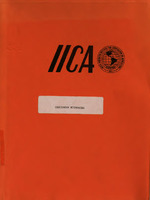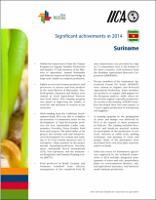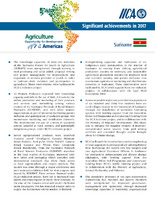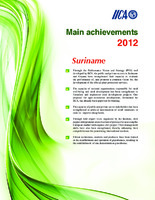| dc.contributor.author | Mhango, Baijah | es |
| dc.contributor.author | Instituto Interamericano de Cooperación para la Agricultura (IICA) | es |
| dc.coverage.spatial | Bridgestown, Barbados | |
| dc.date.accessioned | 2020-10-09T17:40:09Z | |
| dc.date.available | 2020-10-09T17:40:09Z | |
| dc.date.issued | 1989 | |
| dc.identifier.uri | https://repositorio.iica.int/handle/11324/12374 | |
| dc.description.abstract | Probably the one dominant feature of the economic, cultural and political relationship between the industrial world and the developing world during the era following world war II is official development aid, also referred to here as foreign aid, development assisstance, concessional flows or simply aid. Aid occupies a central and institutionalised role in the world economy, not only in financing a significant portion of imports and projects in the recipients, mostly developing countries, but also often certifying good behaviour that, as former IMF Mananging Director, Jaques de Larosires of France used to say, unlocks vast other resources to the recipient countries. | es |
| dc.format.extent | 124 páginas | |
| dc.language.iso | en | es |
| dc.publisher | Instituto Interamericano de Cooperación para la Agricultura (IICA) | es |
| dc.relation.ispartof | Conference of the Association of Caribbean Economists (2: 28-30 de mayo, 1989 : Bridgestown, Barbados) | |
| dc.subject | Desarrollo económico||economic development||desenvolvimento económico||développement économique | es |
| dc.subject | Agroindustria||agro-industry||agroindústria||agro-industrie | es |
| dc.subject | Suriname||Suriname||Suriname||Suriname | es |
| dc.subject | Política económica | |
| dc.subject | economic policies | |
| dc.subject | politique économique | |
| dc.subject | política económica | |
| dc.subject.other | Representación Barbados | es |
| dc.title | II Conference of the Association of Caribbean Economists: The political economy of AID: the case of Suriname | es |
| dc.type | Libro | es |





